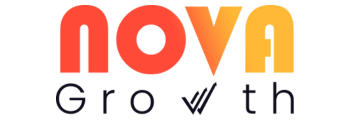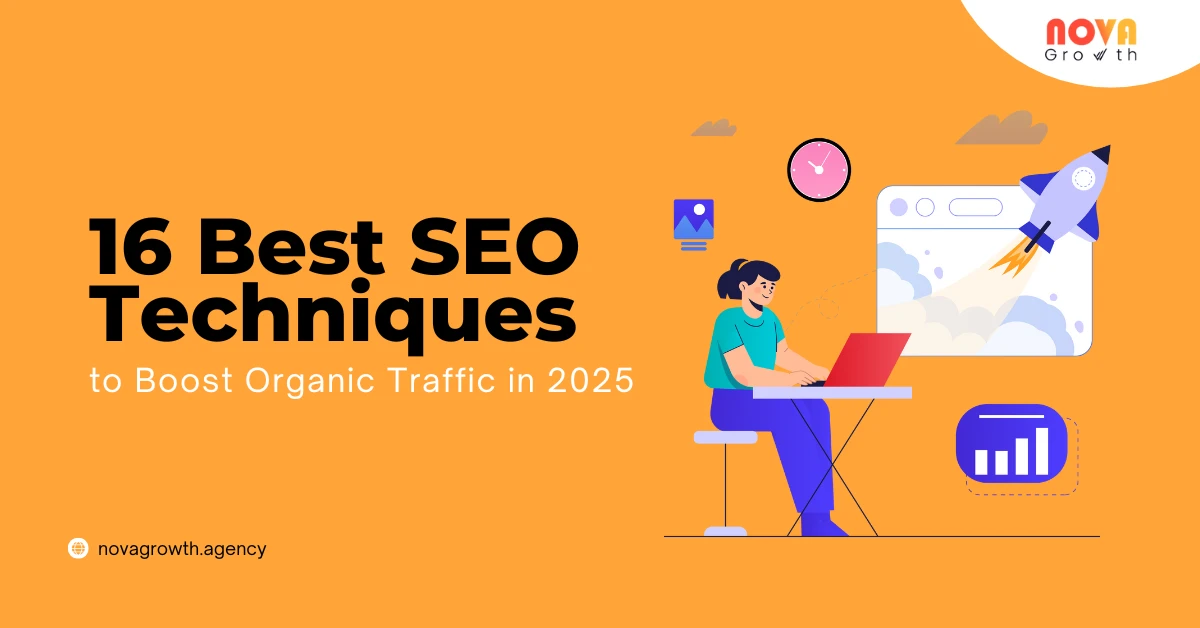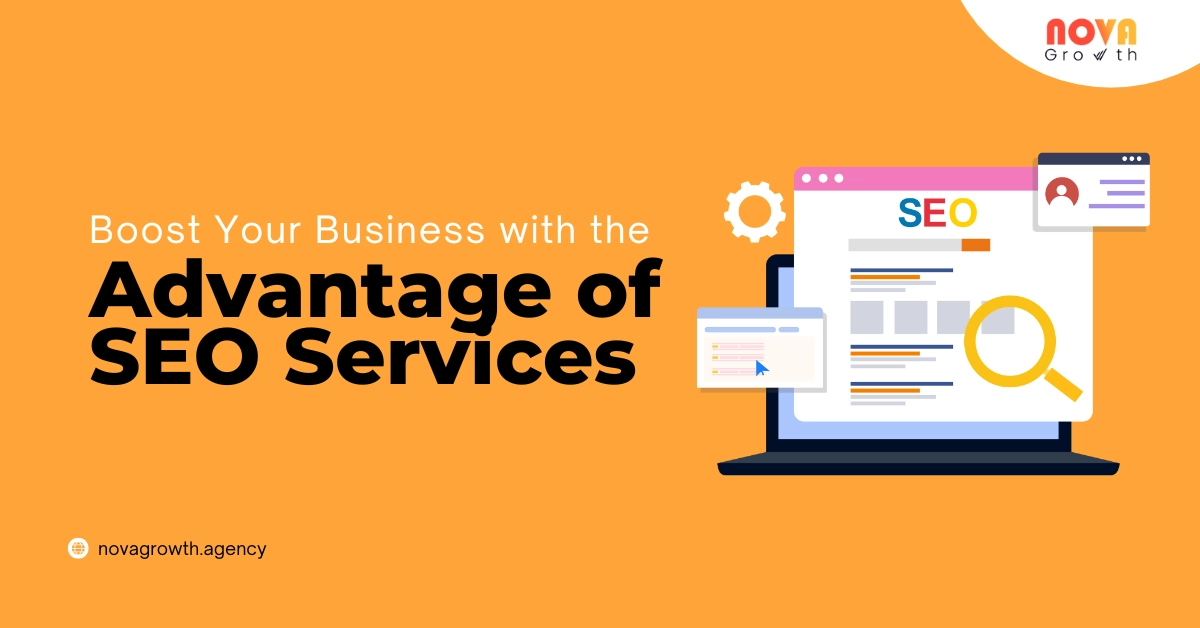Identifying your career’s next move can be challenging. Numerous pathways exist, each with advantages and disadvantages. People are frequently confused between working for an agency and launching their freelance company.
Full-time employment contracts with stable compensation and benefits may be offered by agencies; however, freelancing allows you greater control over your daily operations, schedule, and customers. Are Agencies Better Than Freelancers? Which is Right for Your Project?
You should be aware of the differences between working for an agency and going it alone if you wish to freelance. While some people enjoy working more independently and managing their own enterprises, others prefer to be a part of the team that agencies provide.
Their work conditions and methods vary amongst them. Finding out more about your alternatives will enable you to make the best decision for yourself.
We’ll compare working for an agency vs freelancing in this post to help you determine which is better for your lifestyle and professional objectives.
How do agencies work?
Specialized services are offered to clients via agencies. Hiring an agency can be a cost-effective option for a firm that lacks the resources to finish a project, such as creating a mobile application or rebranding.

Some businesses may rather hire an agency to handle their marketing, sales, or customer support needs than develop their internal staff.
Common types of agencies include:
- Digital marketing
- Public relations
- Social media
- Branding
- Customer service
- Software development
Depending on your position within the business, you might focus on one project at a time or work with several customers concurrently. There are various sizes and forms of agencies. Start-ups or smaller agencies could allow you to try on a variety of hats and jobs.
Larger, more reputable organizations may provide greater structure and the opportunity to pick the brains of seasoned experts.
Mini businesses usually provide their clients with specialized services and concentrate on a certain industry or niche. Full-service companies offer a wide range of services that frequently complement one another, making them a one-stop shop.
How Freelancing Works?
Independent professionals who work for themselves can charge clients directly for their services. Since they own their own companies and work for themselves, freelancers are in charge of locating new customers and making sales pitches.

Working as a freelancer, you may be employed by companies like Upwork and Fiverr, where you would pitch ideas for tasks that prospective customers post on the Talent Marketplace TM. Talent Marketplace clients are driven and actively seeking independent contractors.
Upwork and Fiverr facilitates communication and project submission between independent contractors and clients of all sizes. It also provides payment protection (hourly and fixed-price).
One of the freedoms related to freelancing is the ability to choose the clients you work with and the projects you bid on and accept. Most of the time, you are free to decide where and when you work (unless your company requires you to be online at a specific time, such as for a meeting).
Usually, freelancers bill their clients on an hourly basis or through fixed-rate contracts for completed work.
Freelancing vs. Working at an Agency
Whether or not you want someone to offer you clients and duties is the main difference between working for an agency and freelancing. In an agency, you most likely work in a team under the direction of a manager who allocates duties to you.
The atmosphere is more cooperative, with numerous individuals frequently contributing to the same project.
It’s up to you as a freelancer to locate new clients and projects you want to work on. Being your boss gives you greater freedom to work from home and select the tasks you want to work on.
However, it also comes with additional duties, such as keeping track of and recording hours worked and promoting your offerings. Contract to contract, the manner you collaborate with clients may change.
While some clients are hands-off and let you work independently, providing input only, when necessary, others may integrate you into their teams and check in frequently.
One of your clients may assign you to a separate project, have you work in a team or hire you for several projects with varying workflow requirements.
Deliverables are approved by the client, thus it’s your responsibility to make sure you meet and beyond their expectations. Building your reputation on a platform like Upwork and Fiverr is mostly dependent on customer and user evaluations.
Benefits and Drawbacks of Agency Employment
Those who enjoy the concept of working on a range of projects and with different clients but have reservations about becoming independent professionals may find agencies fascinating. Your team environment might be more regimented with an agency. Some organizations permit hybrid or remote work.
Agencies may provide full-time job opportunities with benefits and consistent salaries. It may be necessary to give up the flexibility, autonomy, and growth opportunities that come with freelancing to achieve this stability.
Let’s examine the benefits and drawbacks of working for an agency in more detail.
Benefits
- The benefits and regular income that come with full-time employment contracts are among the primary advantages of working at an agency. Working full-time entitles you to benefits like paid time off and healthcare, and it also sets your pay schedule.
- Planning your finances can benefit from this, particularly if you’re taking care of someone.
- You can work in a team and have greater options for collaboration in an agency. Additionally, the organization can have internal assets for networking opportunities or staff development and advancement. You don’t have to work alone because you have coworkers you can ask for help and guidance when you need it.
- Depending on your role, your manager could hand you duties and projects rather than having you actively seek employment and pitch clients. You might work directly with clients or delegate your deliverables to other team members within the organization.
- A workplace that is more structured and collaborative, like an agency, can be a wonderful fit for you to develop professionally.
- In an agency, your manager will probably take care of a lot of the project’s administrative details, such as deadlines and dependencies, so you can concentrate on carrying out the tasks given to you.
Drawbacks
- Not everyone is suited for an agency. They have a reputation for being fast-paced workplaces, which, depending on the business, can mean long hours and stress. Certain fields, such as marketing and advertising, place a high value on agency experience, which increases competition for jobs, particularly entry-level ones.
- Unless you work for yourself or as a contractor, you probably won’t be able to set your hours and decide when to work. The responsibilities at agencies may be heavier than what you would like to handle as a freelancer.
- Rather than haggling over pay for each job or client, you will probably receive a fixed salary or hourly rate, perhaps enhanced by a commission or bonus. You’ll need to speak with your manager or wait until your yearly review if you believe you should be given a raise.
- At an agency, your creative freedom can be less than it would be if you were freelancing. It’s possible that the agency has particular protocols and styles that you must follow, and that the creative choices are made by other teams or the leadership.
- Additionally, you have less influence over the jobs and customers you work with. You might select some of your tasks, depending on the agency, but you will probably be given clients to work with.
- You can launch your own agency on Upwork and Fiverr if you enjoy working in a collaborative environment. Increase your creative autonomy and control while collaborating with other self-employed experts.
Benefits and Drawbacks of Freelancing
The increased flexibility in scheduling and location that comes with freelancing is one of its attractions. You establish your own working hours and schedule when you work for yourself.
You will be able to travel, take care of your loved ones, and work when you are most productive thanks to this flexibility.
It takes discipline for freelancers to spend time pitching to clients. You should have enough money saved up for the unexpected sluggish period, especially in the beginning, as the workload might not always be reliable. It can take time to establish a freelance business.
Benefits
- Running your own business, which allows you greater flexibility and career control, is basically what freelancing entails. You get to design your schedule, choosing your working hours and client availability.
- While some people need to be available for school, appointments, and other commitments, others prefer to follow a regular 9 to 5 schedule. You may choose to work around meetings and whenever inspiration strikes, without having any determined hours at all.
- Working as a freelancer gives you the freedom to select the projects you work on, the clients you deal with, and the particular talents and services you provide. Choosing a specialty and operating as an expert as opposed to a generalist is a well-liked freelancing tactic. Choose your most enjoyable activity and work to excel at it.
- As a freelancer, you have the right to say no and decline an offer if it doesn’t fit your schedule or the customer doesn’t seem like a good fit. You now have more control over the work you accomplish as a result.
- Contracts are worked by freelancers. While some are long-term and continuous, others are brief or one-time events. If your experience is subpar with a client, you can choose not to work with them again.
- The review mechanism on Upwork and Fiverr functions reciprocally. You can view the public feedback left by other freelancers about the customer while applying to tasks and analyzing offers. This can assist you in avoiding dealing with challenging clients.
- You have more creative control over your work when you freelance. The client is the one to whom you report, not a manager or other decision-maker. Based on your pitches and portfolio, clients select you. What sets you apart and frequently draws in clients are your distinctive style and imaginative decisions.
- When you work as an independent contractor, you determine your rate and how much to bill customers during negotiations and pitches. You may initially choose to set your hourly fee close to the lowest end of the skill-specific average range.
- You can boost your fees and treat yourself to a raise when the demand for your services increases and your availability decreases each week. For long-term contracts, you may even include in your Upwork and Fiverr proposal a scheduled rate increase.
- Compared to working a fixed hourly or paid position, freelancing offers the possibility of earning more money. You have the option to upskill and provide your clients with more services, possibly at a higher cost. The only limit is the amount that clients are willing to pay, which is determined by your reputation, experience, and skill set.
Drawbacks
- Every job also has its drawbacks. Owners of small businesses are freelancers. This implies that you are not entitled to any employer-provided benefits, such as paid time off and health insurance.
- It’s important for freelancers to properly budget because their revenue could fluctuate. Rather than receiving a weekly salary, you can be employed under contracts that pay more than others. Until you reach a milestone or turn in an invoice, you cannot get paid unless you’re on an hourly contract, which involves weekly billing cycles.
- You must allot time when freelancing for acquiring customers and pitching, marketing, and other business management duties. You must account for these unpaid hours in your hourly wage. The freelance rate calculator can be used to determine the minimal charge per hour that you would need to pay your costs as a freelancer.
- You can save time by working on a site like Upwork and Fiverr, where many of your administrative tasks are integrated. Without ever leaving the platform, look for work, submit proposals, manage your hours, meet deadlines, and communicate with clients. You can even promote yourself to potential clients by activating your Availability Badge or leveraging Connects to strengthen your offering.
- Some independent contractors opt to pitch by contacting prospective clients using cold emails or inbox messages to avoid platform fees. 10% of their profits are paid by freelancers to utilize Upwork and Fiverr. You can do both as a freelancer as long as you meet the client somewhere other than Upwork and Fiverr.
- If the client does not have an Upwork and Fiverr account, you can still work with them if you attend a networking event that is not affiliated with Upwork and Fiverr or if you receive a lead from a personal friend. To add to your security and peace of mind, Upwork and Fiverr may also be used to handle your contracts and take payments.
- Some people find working as freelancers to be isolating, missing the social interaction that comes with working in an office or as a member of a team. Since most projects are entirely remote, freelancers are free to select their hours and locations.
- You are probably working alone all day until your customer calls a meeting or asks you to work with other team members. Coworking facilities, such as coffee shops, can aid in bridging the social divide.
Evaluating your Choices and Priorities
Consider your dream workplace before choosing between working for yourself or through an agency. Think about your own working style: do you work best alone or in a collaborative environment in the office?
Effective time management is essential when working remotely to avoid interruptions and maintain productivity. While some find it simpler to keep motivated and on track on their own, others believe that the routine and accountability of working in an office is necessary.
As you determine which professional route best fits your ambitions, you must also consider your priorities. Your career goals are the things you wish to achieve both short- and long-term in your professional life. Consider your own objectives as well, such as achieving a work-life balance or scheduling flexibility.
If you want to learn from others and acquire experience in your area, working at an agency might be a better fit. An excellent method to get started is via an agency. In the future, it might be a useful stepping stone toward landing a full-time position at a larger organization. Having experience working for an agency can help you stand out as a candidate for a position.
You may create a business from anywhere you choose and work on the exact kind of projects you enjoy when you freelance. You can hone your abilities and develop into a specialist in your field or set of abilities. Develop your portfolio and collaborate with global clients. You can look at contract-to-hire options if you decide you want to work full-time for just one customer.
Examine your finances to determine whether you now require a stable salary or whether you have the resources to work for yourself. When you originally started freelancing, you may not be paid for all 40 hours per week or have a backup contract ready for when your current one expires. You will want a strategy for the interim periods and when your schedule isn’t full.
There is always risk involved in starting a business, so not everyone is cut out for it. Depending on the state of your savings at the moment, this could result in stress and unstable financial circumstances. Some folks may prefer the more stability that comes with working for an agency.
Tips and Resources for Success
Invest in your professional and personal development to position yourself for success. Examine your current situation and contrast it with your desired state six months, a year, and five years from now. Do a self-evaluation to find any areas where you may improve your chances of landing a job or gaining more clients as a freelancer.
Here are some pointers to help you get an interview if you’re interested in working for an agency:
- Seek out internship possibilities.
- Obtain guidance in writing your resume.
- Gig economy work to expand your portfolio
- Make samples for ideal customers.
- Go to networking gatherings
- Speak with prospects
The following advice can help you get started if you wish to explore freelancing:
- Make an account on Upwork and Fiverr.
- Make sure that your profile attracts clients.
- Give your summary and title careful thought.
- Send compelling proposals.
- Check Upwork and Fiverr to see what skills are in demand.
- Identify your specialty and set yourself apart.
- Remain arranged.
These professional development tools will help you in determining the next steps in your career, regardless of whether you choose to work for an agency or go freelance:
- Examine websites that offer online education and courses.
- Establish SMART objectives.
- Make a plan for your career progression.
- Utilize resources for career growth
- Determine whether you need to change careers.
- Recognize the many kinds of work contracts.
Conclusion
Your work style and overall career goals will determine whether you choose to work for an agency or freelance.
You can meet other independent professionals and seek direction from them by joining the Upwork and Fiverr Community and reading through the success stories of successful freelancers who have developed their careers on the site.
You might try contacting people on LinkedIn to find out more about what it’s like to work at an agency. Send messages to staff members holding the job titles you’re interested in after determining the kind of agency you’d like to work for.
Tell them you’re thinking about working for an agency, and ask if they’d be willing to share their experience in a conversation.
Your ability to work as much or as little as you like is one advantage of being a freelancer. You can test out a few smaller tasks or part-time freelancing to see if you enjoy it before committing fully. After dedicating a few hours per week outside of your 9 to 5, gradually make the shift to full-time freelance work.
It’s simple to begin working as a freelancer on Upwork and Fiverr. To see what recently listed jobs match your talents, all you have to do is create a free account, fill out your profile, and apply. Similar to you, clients are searching for support with their next projects.
FAQs (Frequently Asked Questions)
1: What are the main advantages of working with an agency over a freelancer?
Working with an agency often offers several advantages compared to hiring a freelancer:
- Broad Expertise: Agencies typically have a team of specialists with diverse skills, such as designers, marketers, developers, and strategists. This collective expertise can provide a more comprehensive solution to your needs compared to a single freelancer who may have a more limited skill set.
- Consistency and Reliability: Agencies usually have established processes and systems in place to ensure consistent quality and reliable delivery. They are often better equipped to handle large projects or ongoing work due to their structured approach and resources.
- Scalability: Agencies can scale their services according to the project’s needs. If your project grows or changes, agencies can adjust their team size and resources accordingly, whereas freelancers might be limited by their availability or capacity.
- Project Management: Agencies often include project management as part of their service. This means you have a dedicated point of contact who coordinates with different team members, manages deadlines, and ensures the project stays on track.
- Accountability: Agencies usually have formal contracts and service level agreements (SLAs) that outline deliverables, timelines, and quality standards. This can provide greater accountability and legal recourse if issues arise.
2: Are freelancers more cost-effective than agencies?
Freelancers can be more cost-effective than agencies for several reasons:
- Lower Overheads: Freelancers generally have lower operating costs as they do not have the same overhead expenses as agencies. They work independently and do not need to cover costs related to office space, full-time staff salaries, and other operational expenses.
- Flexibility: Freelancers often offer more flexible pricing models, such as hourly rates or project-based fees, which can be advantageous for smaller projects or businesses with tighter budgets.
- Direct Communication: Hiring a freelancer means you are working directly with the individual doing the work. This direct communication can reduce misunderstandings and streamline the decision-making process, potentially saving time and money.
However, it’s important to balance cost with the value provided. For larger projects or those requiring multiple areas of expertise, the cost of an agency might be justified by the added benefits of a comprehensive service and a team of experts.
3: What are the potential drawbacks of hiring an agency compared to a freelancer?
While agencies offer many benefits, there are potential drawbacks to consider:
- Higher Costs: Agencies typically charge more than freelancers due to their larger team and overhead costs. This can be a significant factor for smaller businesses or projects with tight budgets.
- Less Personalized Service: Agencies may handle multiple clients simultaneously, which can sometimes lead to less personalized attention compared to working directly with a freelancer. Your project might be managed by different team members, leading to potential gaps in communication.
- Complexity: Working with an agency often involves more complex contracts, processes, and negotiations. This might be overwhelming or cumbersome for simpler projects that could be handled more efficiently by a freelancer.
- Less Flexibility: Agencies may have more rigid structures and processes, which can make them less flexible in terms of adapting to sudden changes or last-minute requests.
4: How does the quality of work compare between agencies and freelancers?
The quality of work can vary greatly between both agencies and freelancers and largely depends on the individual or agency’s experience, expertise, and commitment.
Generally:
- Agencies: Agencies often have a team of experts, which can result in high-quality work and a cohesive approach to projects. They may also have quality control processes in place to ensure consistency.
- Freelancers: The quality of a freelancer’s work depends on their individual skills, experience, and work ethic. Top-tier freelancers can deliver exceptional results, but finding and vetting the right one can be challenging.
In both cases, it’s crucial to review portfolios, check references, and clearly define project requirements to ensure high-quality outcomes.
5: When might it be better to hire a freelancer instead of an agency?
Hiring a freelancer might be preferable in the following scenarios:
- Small Projects: For smaller projects or tasks that require a specific skill set, freelancers can offer a more cost-effective and straightforward solution.
- Tight Budgets: If your budget is limited, freelancers often provide more flexible and lower-cost options compared to agencies.
- Specialized Skills: If you need highly specialized expertise or a unique skill set for a short-term project, a freelancer with the relevant experience might be a better fit.
- Direct Collaboration: For projects where you want direct and personal collaboration without intermediary layers, working with a freelancer can provide more direct communication and quicker decision-making.
Ultimately, the choice between an agency and a freelancer depends on your project’s scale, complexity, and specific needs.

I’m Ibrar Ahmed, a WordPress and SEO expert with 5+ years of experience helping businesses of all sizes improve their online visibility and organic traffic. Proven track record of success in increasing search engine rankings, leads, and sales.





